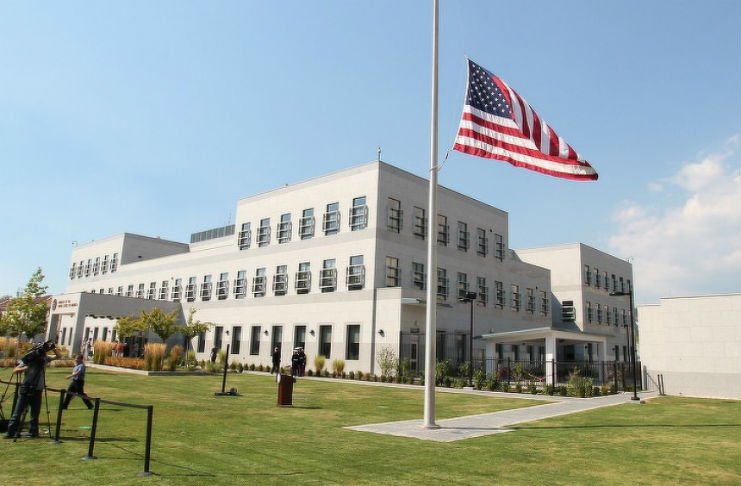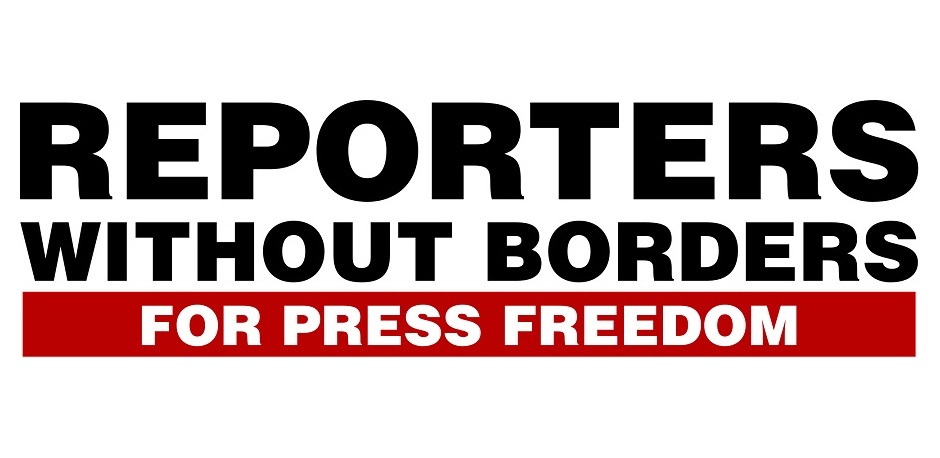The Embassy of the United States of America in Bosnia and Herzegovina published an annual report for 2019 on the human rights situation in BiH. One part of the report is devoted to freedom of expression and freedom of the media, stating that these rights are guaranteed by law, however, the level of respect for these rights and freedoms by the authorities remained low.
Throughout the year, intimidation, harassment, and threats to journalists and the media continued, including an increasing number of death threats, while media headlines were dominated by nationalist rhetoric and ethnic and political bias, often inciting intolerance and sometimes hatred. The lack of transparency in the media ownership was also mentioned as a problem in the report.
The laws of the country provide for a high level of freedom of expression, but the irregular and, in some cases, incorrect implementation and application of the law greatly undermined press freedoms. The law prohibits expressions of racial, ethnic or other intolerance, as well as “hate speech”, but the authorities did not ensure the application of such prohibitions.
Data from the Free Media Help Line (FMHL) indicated that courts continued to fail to differentiate between different media genres (in particular, between news and commentary), while long court procedures and legal and financial battles were financially exhausting to journalists and outlets.
The FMHL concluded that years of incorrectly implementing the law had caused direct pressure against journalists and media and that such pressure jeopardized journalists’ right to freedom of expression.
Independent media were active and expressed a wide variety of views without restriction, but sometimes this resulted in pressure or threats against journalists. The law prohibiting expression that provokes racial, ethnic, or other forms of intolerance applies to print and broadcast media, the publication of books, and online newspapers and journals but was not enforced, the report warned.
Also, it is stated that the political and financial pressure on the media has continued. Some media outlets noted that allegations of tax evasion and elaborate financial controls continued to be powerful tools in attempts to intimidate and control outlets.
The number of physical attacks on journalists has increased. Attacks on the professional integrity of journalists and freedom of the press continued to grow. Public officials have repeatedly obstructed the work of journalists.
The practice of pressuring journalists to censor their reporting continued. Investigative stories on corruption in the country’s judicial sector focusing on high-level officials resulted in additional pressure on journalists.
Authorities continued exerting pressure on media outlets to discourage some forms of expression, while party and governmental control over a number of information outlets narrowed the range of opinions represented in both entities.
Public broadcasters remained under strong pressure from the authorities and political forces due a lack of long-term financial stability. Public broadcasters remained exposed to political influence, especially through politically controlled steering boards. These factors limited their independence and resulted in consistently subjective and politically biased news.
The law on the public broadcasting system is only partially implemented and entity laws are not in line with state level law. Public broadcasters continued to be in a difficult financial situation, primarily due to the lack of an efficient, unified, and stable system of financing
Intimidation and threats against journalists continued during the year. Cases of violence and death threats against journalists were recorded as well. Intimidation and politically motivated litigation against journalists for their unfavorable reporting on government leaders and authorities also continued.
As of August the FMHL recorded 37 cases involving violations of journalists’ rights and freedoms, five death threats, and six physical assaults. According to data from BH Journalists covering the period from 2006 to 2019, authorities prosecuted approximately 30 percent of criminal acts reported against journalists and investigated more than one-third of alleged violations of journalists’ rights.
The censorship section of the report noted that multiple political parties and entity-level institutions attempted to influence editorial policies and media content through legal and financial measures. As a result, some media outlets practiced selfcensorship.
In some cases, media sources reported that officials threatened outlets with loss of advertising or limited their access to official information.
– Prevailing practices reflected close connections between major advertisers and political circles and allowed for biased distribution of advertising time. Public companies, most of which were under the control of political parties, remained the key advertisers. – the report outlined.
Outlets critical of ruling parties claimed they faced difficulties in obtaining advertising.
Although defamation has been decriminalized in BiH, a large number of complaints continued to be brought against journalists, often resulting in extremely high monetary fines. Noteworthy court decisions against journalists included temporary bans on the posting or publication of certain information as well as very high compensatory payments for causing “mental anguish.”
The U.S. report states that the authorities did not restrict freedom of expression on the Internet, nor disrupt access to the internet or censor online content, and there were no credible reports that it monitored private online communications without appropriate legal authority.
The law prohibits expression of racial, ethnic, or other intolerance, including hate speech, but authorities did not enforce these prohibitions for online media
Reports on the human rights situation in the countries in 2019 were prepared by the United States Department of State, Bureau of Democracy, Human Rights and Labor
Read full report: United States Embassy in BiH








